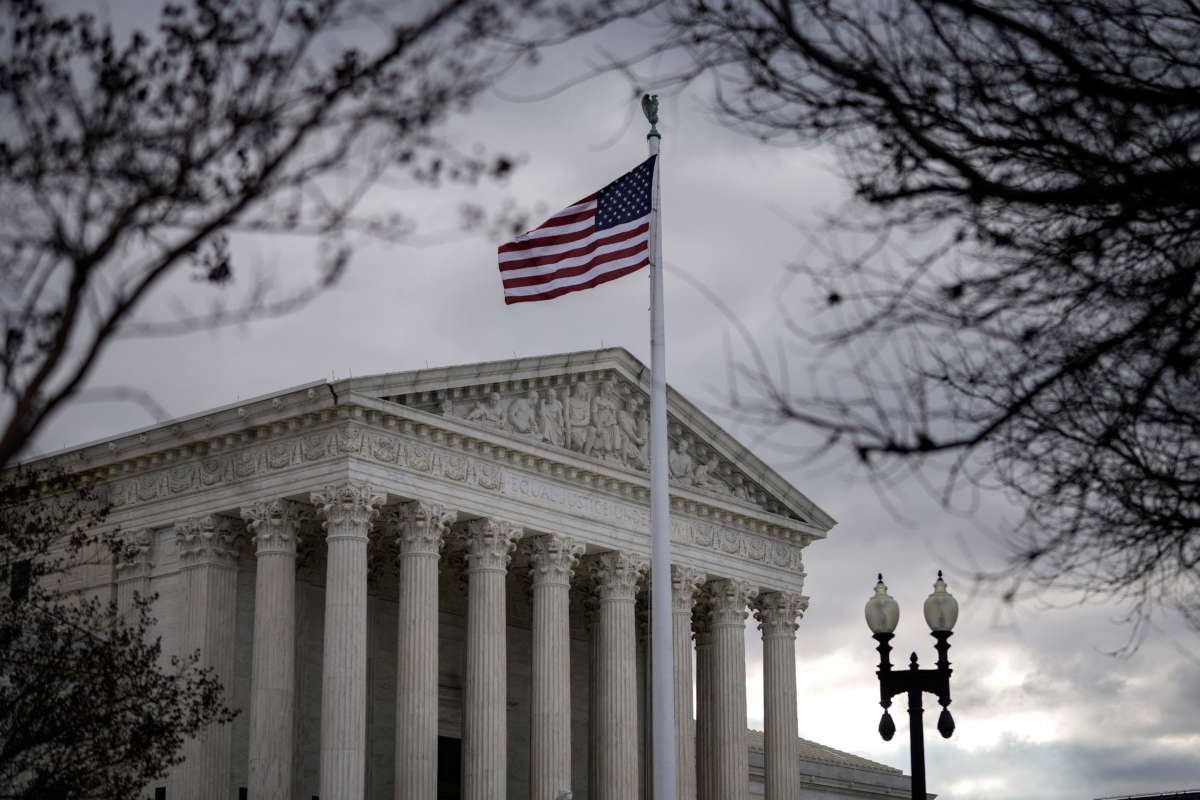Support justice-driven, accurate and transparent news — make a quick donation to Truthout today!
The United States Supreme Court sided with Republicans in the Wisconsin state legislature on Wednesday, overturning state legislative maps that had been approved by both Democratic Gov. Tony Evers and the conservative majority state Supreme Court.
In an unsigned decision, the majority of the federal Supreme Court said that the state court had not given enough consideration to whether the Voting Rights Act required adding a seventh assembly district in the state Assembly that would be made up primarily of Black voters. The Court found that the state court “committed legal error” in failing to consider the 14th Amendment’s Equal Protection clause when deciding on the maps.
The ruling remands the case back to the state Supreme Court, which can reconsider Evers’s maps. But “any new analysis,” the federal High Court said, “must comply with our equal protection jurisprudence.”
The addition of a seventh majority-Black district in the state would arguably fall in line with both the Voting Rights Act and the Equal Protection clause, given that Black residents in the state comprise close to 7 percent of the state’s total population.
Justice Sonia Sotomayor penned a dissent blasting the decision as “unprecedented,” which Justice Elena Kagan signed on to.
“The court today faults the State Supreme Court for its failure to comply with an obligation that, under existing precedent, is hazy at best,” Sotomayor said.
In a separate ruling, the Supreme Court let maps that redrew U.S. congressional boundaries stand.
Elections clerks in the state noted that the Supreme Court’s decision will complicate their work since the ruling essentially tosses out the state legislative maps, three weeks before candidates for office are set to start getting nomination papers signed by constituents.
“We are 3 weeks away from Nomination papers being circulated, and because of the Right Wing SCOTUS action here, we do not have legislative districts,” Democratic Party insider George Gillis said.
Several progressive organizations in the state spoke out against the ruling.
“The rightwing justices on the U.S. Supreme Court swerved way out of their way to favor their Republican friends in the Wisconsin legislature. It is but the latest example of how nakedly partisan the high court has become,” said Matthew Rothschild of the Wisconsin Democracy Campaign.
Sachin Chheda of the Fair Elections Project noted the hypocrisy of the Court’s ruling — the Court had rejected Voting Rights Act claims in previous challenges from Democrats in other states, but accepted them when it helped Republicans in Wisconsin.
“Never has it been clearer that the U.S. Supreme Court majority will do anything it can to advance Republican interests, rather than the law, the Constitution, and the will of the people,” Chheda said.
Evers also seemed to agree with that assessment. In a statement reacting to the ruling, the Wisconsin governor noted that the Supreme Court “made a remarkable departure, even from their own recent actions, by deciding to reject our maps that the Wisconsin Supreme Court selected just a few weeks ago.”
“Our maps are far better than Republicans’ gerrymandered maps we have now and their maps I vetoed last year,” Evers added, “and we are confident our maps comply with federal and state law, including the Equal Protection Clause, the Voting Rights Act, and the least-changes standard articulated by the Wisconsin Supreme Court.”
Trump is silencing political dissent. We appeal for your support.
Progressive nonprofits are the latest target caught in Trump’s crosshairs. With the aim of eliminating political opposition, Trump and his sycophants are working to curb government funding, constrain private foundations, and even cut tax-exempt status from organizations he dislikes.
We’re concerned, because Truthout is not immune to such bad-faith attacks.
We can only resist Trump’s attacks by cultivating a strong base of support. The right-wing mediasphere is funded comfortably by billionaire owners and venture capitalist philanthropists. At Truthout, we have you.
Truthout has launched a fundraiser, and we have only 24 hours left to raise $17,000. Please take a meaningful action in the fight against authoritarianism: make a one-time or monthly donation to Truthout. If you have the means, please dig deep.
